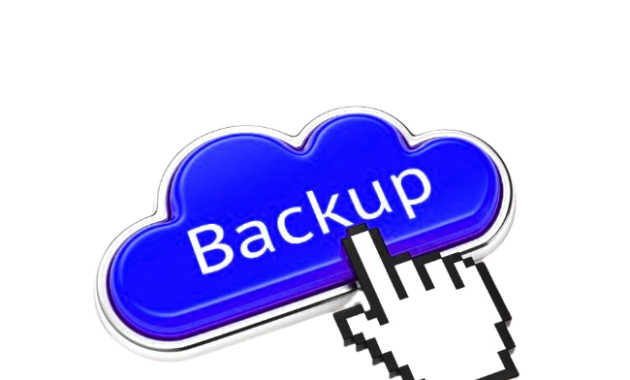
In today’s digital age, securing data is paramount. Backup server cloud solutions provide essential protection for businesses and individuals alike, ensuring that critical information remains accessible and safe. This guide details the best backup server cloud solutions available, highlighting their benefits, features, pricing, and purchasing options.
Key Benefits of Backup Server Cloud Solutions
- Data Security: Cloud-based backup solutions protect against data loss, providing automatic encryption, redundancy, and compliance with industry standards.
- Scalability: These services grow with your data needs, making them ideal for businesses experiencing rapid data growth.
- Ease of Access: Remote access to backups allows for quick data recovery from anywhere, minimizing downtime.
- Cost-Efficiency: Avoids the need for extensive on-premise infrastructure, reducing costs associated with maintenance and upgrades.
Top 15 Backup Server Cloud Solutions
Here’s a closer look at some of the top backup server cloud solutions available, each suited to various needs:
1. Acronis Cyber Backup
Features: AI-powered ransomware protection, hybrid backup, and disaster recovery
Use Case: Ideal for small to mid-sized businesses needing robust cyber protection
Price: Starts at $59.00/year
2. Veeam Backup & Replication
Features: Advanced VM backup, instant recovery, and scalability
Use Case: Perfect for large enterprises requiring rapid recovery and virtual environment backup
Price: Contact sales for pricing
3. Carbonite
Features: Continuous data backup, file restoration, and HIPAA-compliant
Use Case: Small to medium-sized businesses looking for compliance and reliable file backup
Price: Starts at $6/month
4. Backblaze B2 Cloud Storage
Features: Unlimited storage, file versioning, and S3 API compatibility
Use Case: Excellent for startups needing low-cost storage and easy integration
Price: $0.005/GB/month
5. IDrive
Features: Hybrid backup, file-sharing, and real-time backup
Use Case: Individuals and small teams looking for seamless data synchronization
Price: Starts at $79.50/year
6. Microsoft Azure Backup
Features: Cloud-native, multiple data redundancy options, and enterprise-grade
Use Case: Enterprises looking for cloud-native data protection with Microsoft integration
Price: Pricing varies by storage and redundancy level
7. Google Cloud Backup
Features: Encrypted storage, data lifecycle management, and multi-regional access
Use Case: Large organizations needing extensive data storage and global access
Price: Varies based on storage and bandwidth
8. AWS Backup
Features: Centralized backup management, compliance, and rapid scalability
Use Case: Businesses using AWS services looking for seamless integration
Price: Pay-as-you-go
9. Dropbox Backup
Features: Easy-to-use interface, secure file sharing, and file versioning
Use Case: Small businesses and freelancers needing straightforward data protection
Price: Starts at $11.99/month
10. IBM Cloud Backup
Features: High security, data compliance, and recovery options
Use Case: Enterprises requiring high-compliance cloud backup
Price: Custom pricing
11. ElephantDrive
Features: Automated backup, file sharing, and secure cloud storage
Use Case: Great for users looking for user-friendly and reliable cloud storage
Price: $10/month
12. Zoolz Cloud Backup
Features: Cold storage, hybrid backup, and smart data selection
Use Case: Ideal for storing large volumes of infrequently accessed data
Price: Starts at $6.99/month
13. Acronis True Image
Features: Full disk image backup, anti-malware, and secure cloud access
Use Case: Home users looking for all-in-one backup and cyber protection
Price: $49.99/year
14. Duplicati
Features: Free, open-source, and encrypted backups to cloud storage
Use Case: Tech-savvy individuals who need flexible, open-source options
Price: Free
15. CrashPlan for Small Business
Features: Unlimited storage, file versioning, and 24/7 customer support
Use Case: Small businesses seeking a simple, scalable backup solution
Price: $10/month
Product Comparison Table
| Product | Use Case | Advantages | Disadvantages | Price |
| Acronis Cyber Backup | SMBs needing cyber protection | AI-powered ransomware protection | Higher annual costs | $59.00/year |
| Veeam Backup & Replication | Large enterprises | Instant VM recovery | Premium pricing | Contact sales |
| Carbonite | SMBs needing compliance | HIPAA-compliant | Limited storage | $6/month |
| Backblaze B2 | Low-cost storage | S3 compatibility | Limited features | $0.005/GB/month |
| IDrive | SMBs needing hybrid backups | Real-time sync | Limited to 5 TB | $79.50/year |
| Microsoft Azure Backup | Enterprises using Microsoft services | Native cloud backup | Complex pricing tiers | Varies |
| Google Cloud Backup | Large organizations | Multi-regional access | Complex to configure | Varies |
| AWS Backup | AWS ecosystem | Full compliance | Pay-as-you-go pricing can add up | Pay-as-you-go |
| Dropbox Backup | Freelancers, SMBs | User-friendly | Limited business features | $11.99/month |
| IBM Cloud Backup | Compliance-focused enterprises | High security | Custom pricing required | Custom pricing |
How to Purchase Backup Server Cloud Solutions
Purchasing a backup server cloud solution is straightforward, with most providers offering options through their official websites. Some solutions have monthly or annual subscriptions, while others are pay-as-you-go, ideal for scaling with business needs.
FAQs
What is cloud server backup?
It’s a method of storing data on remote servers, offering secure and scalable backup solutions accessible from any location.
Is cloud backup secure?
Yes, most providers offer data encryption, compliance with regulations, and data redundancy for high security.
How much does cloud backup cost?
Costs vary based on storage capacity and additional features, from free options to advanced solutions costing several hundred dollars per year.
Can I use cloud backup for personal files?
Absolutely. Many providers offer personal plans with secure, easy-to-use interfaces for individuals and freelancers.
How often should I back up my data?
Ideally, automatic daily backups are best for businesses, while individuals may opt for weekly or monthly backups depending on data volume.